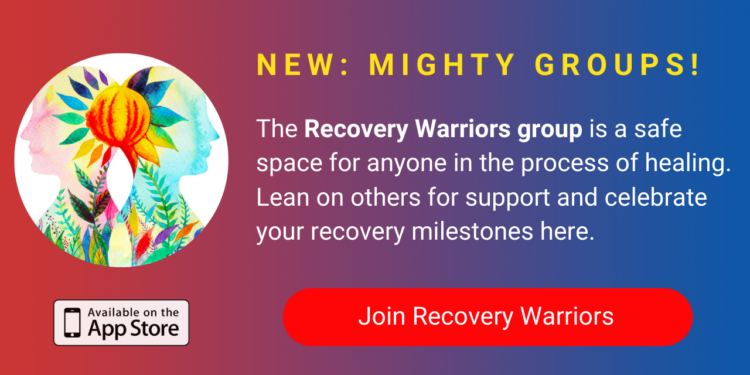“Will people still love me if I am not broken?”
I’ve started to wonder if this is a common question during times of mental health recovery. Throughout my years of recovery, I have asked people in my support system if they would still care about me and pay attention to me when I was no longer an immediate danger to myself. Recently, I had a younger student ask me this same question: Will you still love me if I’m not broken?
As a reader, I can imagine your first answer is an automatic yes. That was my answer to her too. Of course, we will still love that person. We want them to recover. We want them to be happy and healthy. Anyone who has been a consistent support for someone who has a mental illness or has experienced a traumatic experience automatically understands that we would do anything in our capability to make it better.
So many of us ask “what made them ask this question? I’ve been here all this time. Why wouldn’t I love them when they are healthy and happy?” I think it’s important that we take this into consideration.
Here are some ways to support people who are on the healthy and happy side of mental health and trauma recovery:
1. Stay Connected.
Text them. Call them. Send them quotes. Whatever your method is, but continue to connect with them. Everyone needs supportive people, even when they are not in a time of crisis. There can be a tendency to not stay in contact with that person as much once they are in a healthier/safer place, but sometimes it can feel like you don’t care about them anymore.
I had a person very special to me send me quotes every single morning to me for over a year, just to show she was thinking about me and was on my side. She still checks in and sends them every once and a while. It was so meaningful to me to have someone who was there no matter what kind of day it was. Good or bad.
2. Continue to talk about the positive things that are happening between each others’ lives.
This may seem like a “well duh” moment, but it isn’t always. It’s necessary to be there for each other when life gets hard, but what about when something exciting happens? Your partner proposed? Got a job promotion? Share those things with them too! They want to be a part of your daily life. They want to have “normal” conversations with you.
3. Celebrate their successes. No matter how small.
This may sound the same as the last point, but it’s not. Here’s why. When you are recovering from trauma or a mental illness, making small steps towards recovery is a big deal. No matter the size of the action. When you are in a stronger, healthier place, others may not celebrate those small successes as much.
I know that as I recovered, sometimes I started to feel like my small successes didn’t matter anymore. Once you are happier, your tiny steps feel like no progress. I can imagine this is a pretty common feeling. It can be helpful to have a reminder that you are still making progress. Please remind them.
4. Be careful when talking about others who are experiencing similar struggles.
This is kind of like a trigger warning rule. As a support person, we have to be careful not to resurface intense information and bring it up consistently. Here is an example. During my time of recovery and healthier perspective, I can still struggle when there is a major amount of attention brought to someone else who struggled with similar difficulties. Sometimes it makes me concerned that I have to be sick for someone to worry about me. This can actually link back and lead to damaging behavior.
I am not suggesting that our mental health struggles are based off of attention. What I am trying to say is that it is important to be aware of the conversation you are in. You may be triggering someone, and you may not even know it.
5. Still show up. Recovery does not mean no bad days.
We all have bad days. Even when we are in a much healthier and safer place mentally, it doesn’t mean we are never going to face struggles. We still have bad days. We still cry. We still need support, even when it’s simply a bad day.
Recovery does not mean no bad days. It means we are in a healthier and safer place to cope with them. We still need love and support.
6. Remind them that they are still worthy of love, belonging and happiness. They are enough.
This is honestly the simplest way to show people you still care. Just a small message is enough to change our day. Every person needs this reminder once in a while. I can imagine you do too. Today I am sending you a reminder because I care. You matter to me. Your life matters to me.
These six things can be so meaningful to someone, no matter what they may be facing at the time. After reading this, please do me a favor. Call that friend. Text that sister-in-law. Whoever it may be. Your words of love and kindness will never go to waste.
You are strong. You are kind. You are brave. You are loved. You are enough.
Photo by Priscilla Du Preez on Unsplash


